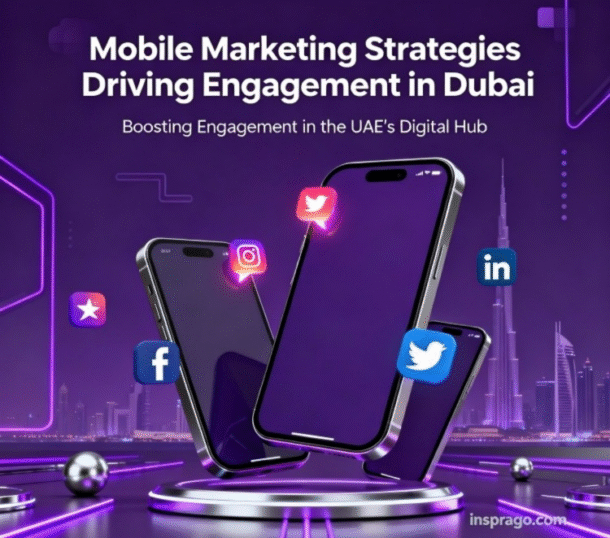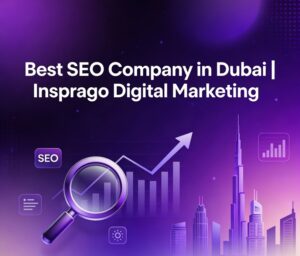In today’s dynamic digital era, mobile devices have revolutionized how brands communicate, engage, and convert audiences. As smartphone penetration continues to surge in the UAE, especially in Dubai, businesses are increasingly shifting toward Mobile Marketing Strategies that prioritize personalized, real-time, and data-driven customer interactions. From SMS campaigns and mobile apps to location-based marketing and social media integration, the power of mobile engagement has never been more influential.
The Rise of Mobile-Centric Consumer Behavior
Over the last decade, Dubai has emerged as one of the most digitally connected cities in the world. With a smartphone adoption rate exceeding 95%, it’s no surprise that brands now view mobile as the center of their marketing ecosystem. Consumers in Dubai spend a significant portion of their day browsing, shopping, and engaging with brands on their mobile devices.
Moreover, the region’s tech-savvy population demands instant access, seamless experiences, and personalized recommendations. Therefore, businesses that implement well-structured Mobile Marketing Strategies can connect more effectively with their audience by meeting them where they are — on their phones.
Why Mobile Marketing Works in Dubai
Dubai’s fast-paced lifestyle and digital maturity have created an environment where mobile-first campaigns thrive. People rely on mobile apps for nearly every aspect of their daily routine — from hailing a cab and ordering coffee to paying bills and booking vacations. Hence, mobile has evolved from a mere communication tool into an essential lifestyle companion.
When businesses adopt Mobile Marketing Strategies, they can benefit in multiple ways, such as:
-
Personalization: Delivering customized offers and messages based on user behavior.
-
Real-time engagement: Reaching audiences instantly with timely updates.
-
Location-based targeting: Using GPS and beacons to send relevant content to nearby users.
-
Increased conversions: Simplifying the path from interest to purchase.
Key Components of Effective Mobile Campaigns
Successful Mobile Marketing Strategies rely on a blend of creativity, technology, and analytics. Below are the most effective components shaping mobile engagement in Dubai today:
1. Mobile-Responsive Websites
First impressions matter, and a slow or poorly optimized website can drive potential customers away instantly. In Dubai’s competitive market, businesses need mobile-friendly websites that load quickly, are visually appealing, and offer easy navigation.
2. SMS and WhatsApp Marketing
Even with the rise of apps, SMS remains one of the most reliable tools in mobile communication. Open rates for SMS marketing exceed 90%, and WhatsApp campaigns add a conversational layer to customer engagement.
3. Mobile Apps
Dedicated mobile apps create a sense of loyalty and convenience. From e-commerce to hospitality, Dubai-based companies use apps to offer exclusive deals, track customer preferences, and encourage repeat visits.
4. Social Media Integration
Integrating mobile marketing with platforms like Instagram, TikTok, and Snapchat enables businesses to connect with younger, mobile-first audiences. Interactive stories, short videos, and shoppable posts enhance visibility and engagement.
5. Location-Based Marketing
Geo-targeting allows brands to send relevant offers when customers are near their stores or events. This not only boosts sales but also enriches the customer journey with real-time relevance.
Harnessing the Power of Analytics
In addition, one of the most transformative aspects of modern Mobile Marketing Strategies is data analytics. Marketers can now measure engagement rates, analyze user journeys, and optimize campaigns for better ROI.
By tracking app downloads, click-through rates, and session durations, companies can understand what resonates most with Dubai’s audience. These insights empower them to refine their messaging, improve UX, and foster stronger connections with customers.
Personalization: The Heart of Engagement
Furthermore, personalization lies at the core of mobile success. Instead of generic promotions, brands now tailor offers based on user demographics, purchase history, and browsing patterns. For example, an online fashion retailer might send customized product suggestions to customers who frequently shop for certain brands.
This hyper-personalized approach increases the chances of conversion while also strengthening customer loyalty. And since Dubai’s audience values exclusivity and convenience, personalization becomes not just a strategy but a necessity.
Case Study: Insprago’s Mobile Marketing Excellence
A great example of successful mobile engagement comes from Insprago, a digital marketing agency in Dubai known for crafting impactful mobile campaigns. Through its innovative use of location-based promotions, interactive push notifications, and AI-powered analytics, Insprago has helped several brands achieve measurable growth in mobile engagement rates.
Their success underscores how Mobile Marketing Strategies can turn passive audiences into loyal customers when executed with precision and creativity.
Trends Transforming Mobile Marketing in Dubai
As technology evolves, so do marketing tactics. Dubai’s landscape is witnessing several emerging trends shaping the next phase of mobile-driven growth:
-
Augmented Reality (AR) Experiences: Brands use AR filters to enhance interactivity and drive social media buzz.
-
Voice Search Optimization: With smart devices like Alexa and Google Assistant gaining popularity, optimizing for voice search has become crucial.
-
Mobile Wallets and Contactless Payments: Seamless checkouts through Apple Pay or Samsung Pay improve user convenience.
-
AI-Powered Chatbots: Automated responses help deliver instant customer service 24/7.
These trends indicate that mobile engagement in Dubai is becoming more intelligent, immersive, and customer-centric than ever before.
Common Challenges and How to Overcome Them
While opportunities are abundant, executing effective Mobile Marketing Strategies also comes with challenges. Businesses often face issues such as ad fatigue, privacy concerns, and fragmented user attention.
To overcome these hurdles, marketers should:
-
Focus on quality over quantity in messaging.
-
Respect user data privacy and ensure transparent opt-in systems.
-
Maintain consistent brand storytelling across mobile channels.
FAQs About Mobile Marketing in Dubai
Q1: Why is mobile marketing important for businesses in Dubai?
Mobile marketing is vital because Dubai’s population heavily relies on smartphones for shopping, communication, and entertainment. Reaching customers via mobile ensures visibility and real-time engagement.
Q2: What types of businesses can benefit from mobile marketing?
Almost all businesses — from retail and hospitality to finance and healthcare — can leverage mobile marketing. The key is tailoring strategies to match audience needs and digital behavior.
Q3: How can a brand measure the success of its mobile campaigns?
Success can be evaluated through metrics such as click-through rates, conversion rates, app downloads, engagement levels, and customer retention data.
Conclusion
Ultimately, embracing Mobile Marketing Strategies is no longer optional — it’s essential for any brand seeking relevance in Dubai’s digital landscape. With rising smartphone adoption and ever-evolving customer expectations, businesses must stay agile, data-informed, and creative to stand out.
By blending innovation with customer insight, brands can drive deeper engagement, achieve stronger conversions, and future-proof their marketing approach. As the city continues to champion the mobile-first strategy and adapts to fast-changing digital marketing trends in Dubai, the future of mobile engagement looks brighter and more impactful than ever before.



















